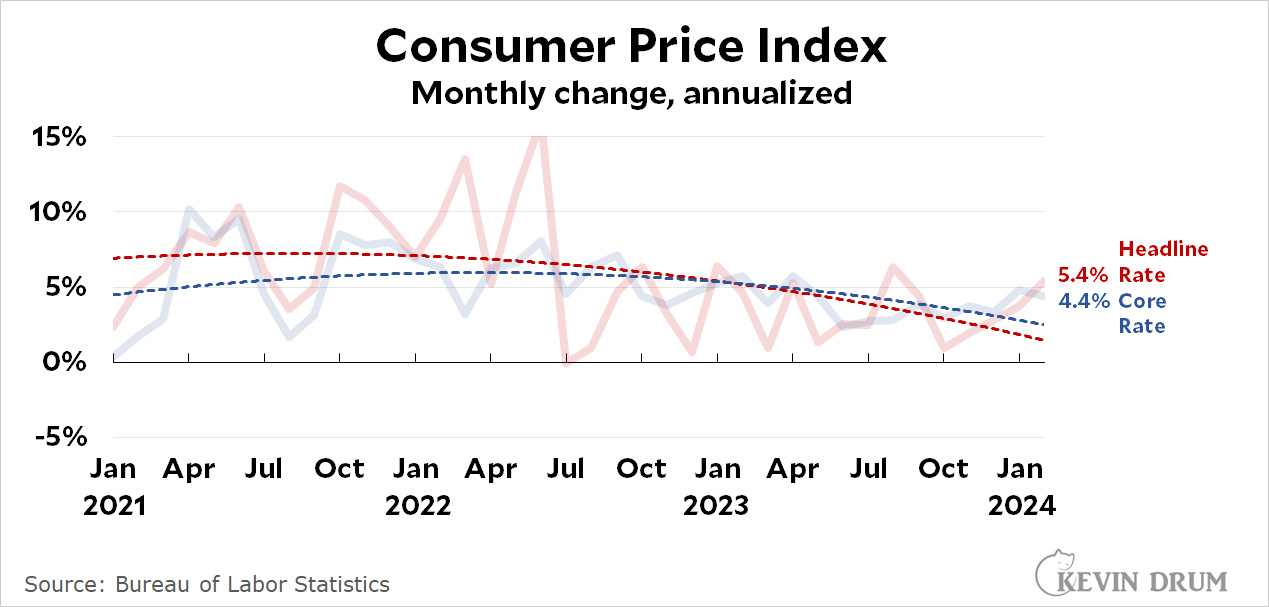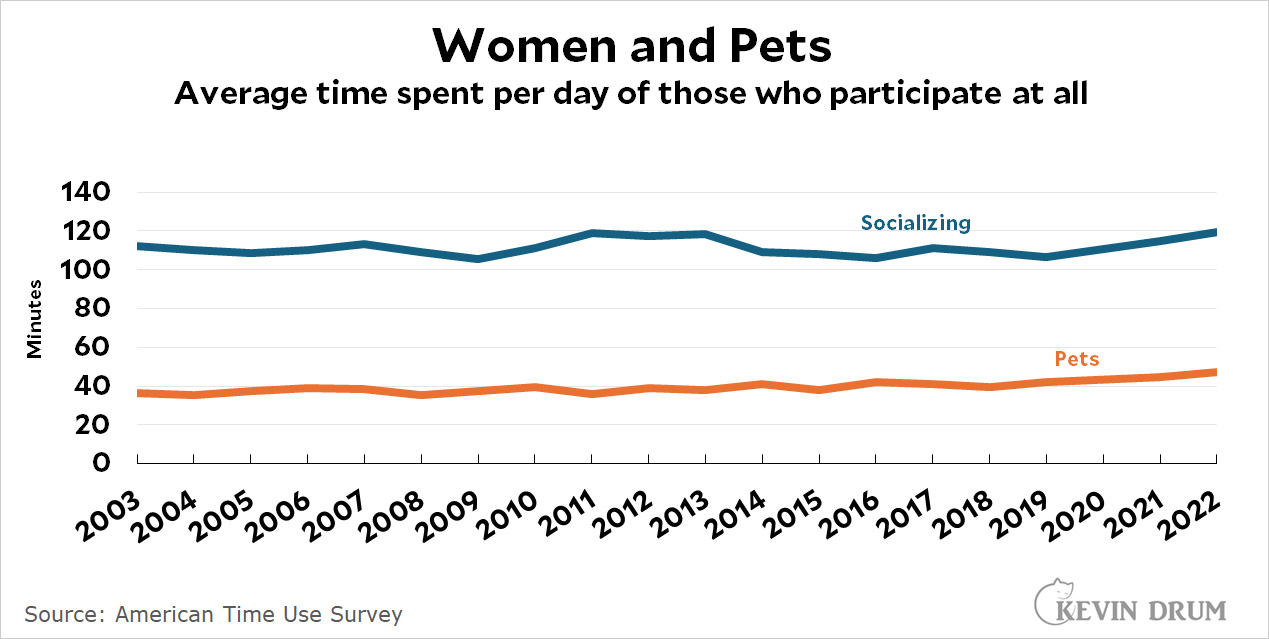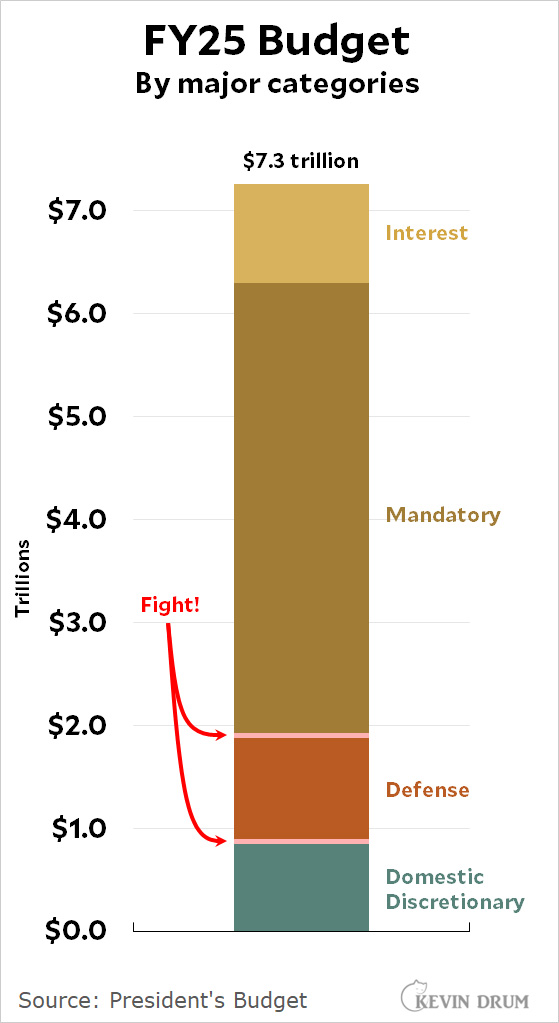A couple of days ago TikTok's users were greeted with an unusual welcome screen when they logged in: a message from the company warning that Congress was trying to shut them down and asking its fans to call their senators and representatives about it. I remain ambivalent about TikTok, but the reaction of the right to TikTok's lobbying is flatly deranged:
The way in which the Chinese-owned social-media app TikTok went about trying to convince lawmakers to leave it alone was unique. It sicced its youthful users on Washington in a campaign of intimidation and emotional blackmail, confirming that the air of menace the app has cultivated for itself is no accident.
....The campaign was a disaster. It presented tangible evidence to lawmakers not only that TikTok’s capacity to track the data and locations of their users was quite robust but also that those users were in the throes of a deep dependency.
....If TikTok survives as a CCP-controlled entity despite the clear evidence of not just the psychological damage it is doing to the American public but the peril it presents to American national security, we will know why. It will be the culmination of this intimidation campaign, in which a well-funded effort to hold America’s children hostage succeeded.
What in the actual fuck is this about? The NRA, just to take one example, is famous for "siccing" its members on Congress by the millions. AIPAC does it, AARP does it, and the NEA does it. It's all just ordinary political mobilization, not "intimidation and emotional blackmail."
Nor does any of this indicate that TikTok knows anything unusual about its users. Its message went out to everyone, young and old, and was personalized only to the extent of guessing what congressional district they were in.
Nor, finally, does TikTok "hold America's children hostage," at least no more than Taylor Swift does. It's just popular with teenagers, like sugary cereal, sappy music, and other dubious habits of the young—whose mercurial passions and fads aren't exactly a well-kept secret.
If there's any real psychological damage here, it's among America's adults, who have flung themselves into a frenzied moral panic about TikTok based on the flimsiest of evidence. I'll be happy to join them if that evidence ever becomes firm, but you have to give me something, folks. Wild screeds with literally zero behind them aren't going to do it.
 Other news outlets basically agree, mostly opting to present their findings as "nuanced" or providing "context." But they fundamentally say the same thing: Biden was being Biden. He joked, he veered off into stories, and he got two or three things wrong during a five-hour interview. In no way did he seem like a forgetful grandpa, as Hur gratuitously implied in his report.
Other news outlets basically agree, mostly opting to present their findings as "nuanced" or providing "context." But they fundamentally say the same thing: Biden was being Biden. He joked, he veered off into stories, and he got two or three things wrong during a five-hour interview. In no way did he seem like a forgetful grandpa, as Hur gratuitously implied in his report.





